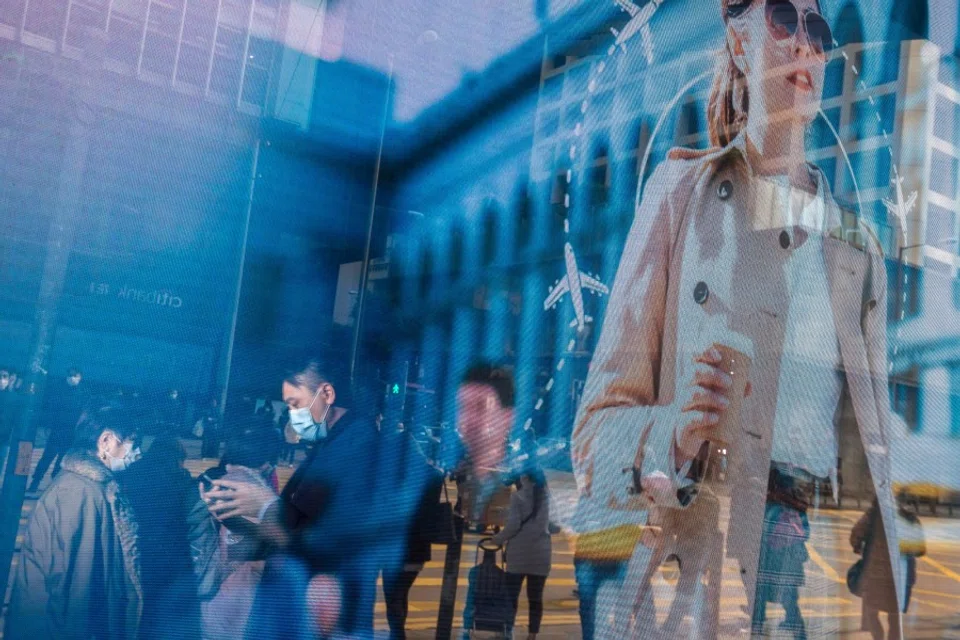The Wuhan coronavirus outbreak and its possible effects on the Hong Kong economy
Hong Kong, being adjacent to mainland China, is worried about the Wuhan coronavirus. Besides the physical impact, there would be political and economic impacts as well if there is an outbreak. Economics professor Paul Yip examines these possible effects, and explains why Hong Kongers are calling for a complete closure of Hong Kong's border with China.

Various views have been offered on how to contain the Wuhan coronavirus in Hong Kong. It would be wise for Chief Executive Carrie Lam to take heed of the suggestions from experts of the University of Hong Kong (HKU) and the Chinese University of Hong Kong (CUHK), and temporarily stop at least 99% of mainland Chinese from visiting Hong Kong. In addition, Hong Kong should adopt Singapore's approach and take it up a notch, by implementing a mandatory home quarantine of up to 14 days for Hong Kong residents who have returned from mainland China. (See Note 1.)*
During this quarantine period, these residents can make alternative arrangements to work from home instead of going back to the office, and should stay at home as much as possible so as to minimise any possible spread of the Wuhan coronavirus, or submit a request to the government to move into a quarantine facility if they are concerned about infecting their family members.
High chance of epidemic spreading in Hong Kong
If the above measures are not taken, there is a high chance of the epidemic spreading in Hong Kong. Many carriers from Wuhan are already in Guangdong and other provinces. According to experts, given the number of latent carriers and transmission rates, the likelihood of a second wave of the epidemic occurring in those areas is high. Once that happens, the number of carriers and people infected will increase exponentially. And given that the human traffic between Hong Kong and China is far higher than Singapore's numbers, without a mandatory halt to human flow, Hong Kong will also become an infected area. This is why the experts at HKU and CUHK have talked about the real possibility that this might happen.
... if the resistance from healthcare personnel grows, even before there is an outbreak, the popularity and legitimacy of Lam and the Hong Kong government might take a hit.
However, it seems that Lam is not yet fully aware that if Hong Kong's borders are not closed, this becomes a probable scenario. (See Note 2.)*
A correct political choice
Even assuming that the chances of the epidemic breaking out in Hong Kong is lower than described above, say 30% to 50%, a politically savvy decision-maker would also choose to go with ground sentiment and expert suggestions. The reason is, if the Hong Kong government accepts the expert views, even if the epidemic does break out eventually, it would not be the government's fault and Lam would not be held responsible. But if the government says no and there is an outbreak, whether or not it really stems from the failure of the government measures above, Lam would be blamed and would lose the support of the people of Hong Kong.

Furthermore, if the resistance from healthcare personnel grows, even before there is an outbreak, the popularity and legitimacy of Lam and the Hong Kong government might take a hit. And so, even the most uncaring politician would choose to consider the political cost and go with ground sentiment and expert suggestions.
...if this resentment spreads through the people of Hong Kong, it will not go away for the next 10 to 20 years. Then, Hong Kong will really become a base against the Chinese Communist Party.
Then why is Lam still inclined not to do so? A possible reason is that she either needs or has not yet obtained Beijing's approval. Lam has said that the Hong Kong chief executive has two masters: Beijing, and the people of Hong Kong. The problem is, if she chooses only to do what Beijing wants to keep her position, while ignoring the calls of Hong Kongers who are worried about their safety, then it would be within reason for Hong Kongers to go from anxiety to anger, and eventually remove her from office.
Now, Lam's only feasible option is to convince Beijing that she has to go with ground sentiment, so that if the epidemic breaks as expected, Hong Kongers' resentment towards the central government will not escalate and the pro-establishment camp will not be completely shut out in the next Legislative Council elections.
Besides, if this resentment spreads through the people of Hong Kong, it will not go away for the next 10 to 20 years. Then, Hong Kong will really become a base against the Chinese Communist Party. And the irony would be that this would be the result of the failure and rigidity of Mrs Lam and the powers that be in Beijing.
A correct choice for the Hong Kong economy
If the Hong Kong government takes the suggestions above and prevents an outbreak or at least delays it until April or May, after which the epidemic will likely be under control when the weather warms up in June, then Hong Kong might see a moderate economic downturn.
With this second blow following the earlier period of anti-extradition protests, many eateries and retailers will either close or shrink. Unemployment will go up and lead to a second and third wave of economic contraction, while closing the China-Hong Kong borders will result in a second round of damage. In this gloomy economic outlook, people will not spend and companies will not invest - that will be the third round of damage.

But if there is no outbreak, the economy would not be too badly hurt. Property developers can stabilise overall property prices by maintaining the prices of new properties. The number of transactions will fall significantly but prices will only go down by a few percentage points. The stock market will fall substantially in the beginning but will rebound as the epidemic comes under control.
Conversely, in the event of an outbreak, Hong Kong's property prices will fall drastically, with a possibility of bursting the current property bubble. And if that happens, the drop in property prices will be serious enough to spark the next banking and financial crisis. Hong Kong's economic downturn will be at least 5% and unemployment can be at least 8%. The stock market will also see a significant dip.
From an economic point of view, Lam should take the measures as requested by the Hong Kong people. But given the rigidity of Chinese officials in dealing with the matter, I am not too optimistic.
Note 1: A notice on the Centre for Health Protection website says that Hong Kong residents who have visited Hubei in the past 14 days should approach the Department of Health (DH) upon arrival, after which they will be quarantined for observation after a health assessment. Hong Kong residents who have been in Hubei in the past 14 days but have already returned to Hong Kong should contact the DH to arrange to be quarantined for observation.
Note 2: As of the time of publishing, Mrs Carrie Lam has announced the closure of 10 out of 13 border crossings between Hong Kong and China. She had also earlier halted some border operations including cross-border ferries and high-speed rail services to the mainland.



![[Photos] Fact versus fiction: The portrayal of WWII anti-Japanese martyrs in Taiwan](https://cassette.sphdigital.com.sg/image/thinkchina/3494f8bd481870f7c65b881fd21a3fd733f573f23232376e39c532a2c7593cbc)

